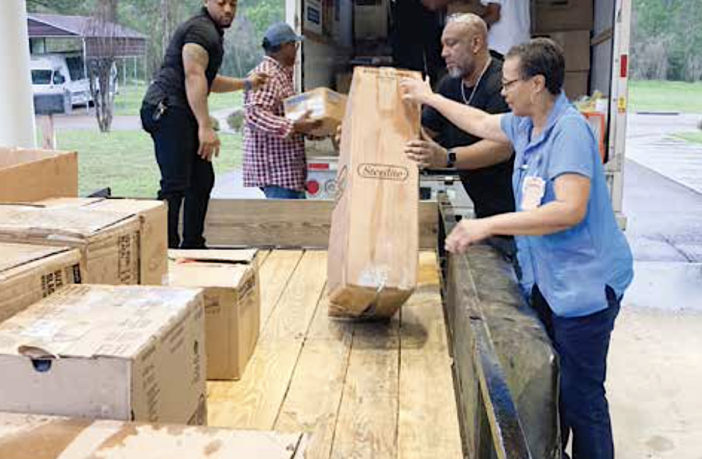On March 24, a deadly tornado tore through the lower Mississippi Delta – including the town of Rolling Fork — gutted hundreds of homes, and left 26 people dead.
Washington Informer photographer Roy Lewis said the violent spree of storms was more than a news event. Lewis grew up 117 miles away, and he was concerned about his brothers and other family members living in his hometown.
“I grew up in Natchez,” Lewis said. “ I came down to check on my brother. I was on my way to Jackson, and once I got on the ground, it was devastating.”
The Rev. Mary Stewart, according to The Associated Press, clung to a door in the hallway of her home in Rolling Fork. She shielded herself from the branches and debris flying through her shattered windows.
The EF-4 tornado destroyed homes that belonged to many residents of Rolling Fork, and in response, an army of faith leaders poured thousands of dollars in supplies and resources to help victims.
“We are a very religious community,” said Laura Allmon, a fourth-generation congregant of the United Methodist Church in Rolling Fork. “It just means a lot for us to be able to get together and pray and be thankful for what we have.”
The tornado killed 13 of Rolling Fork’s roughly 1,700 residents and it destroyed about 300 homes and businesses. Entire blocks were destroyed and many now wonder whether their small town will be rebuilt.
Days after the storm, Gov. Tate Reeves (R) appeared alongside two top Biden Administration officials — Homeland Security Secretary Alejandro Mayorkas and Federal Emergency Management Agency Administrator Deanne Criswell — for a Sunday news conference.
” “What we’ve seen over the last 36 hours in Mississippi, on the one hand, has been heartbreaking to see the loss and devastation of these communities,” Reeves said. “But on the other hand, has been inspiring and gives me great reason for optimism.”
“Rolling Fork will come back bigger and better,” said Rep. Bennie Thompson (D-Miss.) who has held a series of town hall meetings to help victims of the tornado.
Storm survivors received up-to-date information on federal recovery resources from representatives of the Federal Emergency Management Agency, Mississippi Emergency Management Agency, Red Cross and Small Business Administration.
According to FEMA leaders, survivors can go online to disasterassistance.gov, use the FEMA mobile app or call 800-621-3362, 6 a.m. to 10 p.m. Central Time seven days a week.
While Mississippi has been racially divided for decades, the emergency response has brought about an ecumenical sea of humanity.
“This tornado was devastating to the entire town,” said the Rev. Roderick Lewis, pastor of the New Beginnings Missionary Baptist Church in Natchez, who is also the nephew of our legendary Informer photographer.
“This is just not a civil rights problem, this is a human rïghts problem,” the pastor said. “When you have things like this to happen it affects people across the board.”
A number of Christian groups, including Samaritan’s Purse and Convoy of Hope, also deployed disaster relief teams to help survivors after a violent storm system, spawning as many as 60 tornadoes. tore across the United States from March 31 to April 1, resulting in at least 26 deaths.
“In this situation, everyone is working together,” said Roy Lewis, who during the 1960s didn’t always feel good about coming back home to Mississippi. “When I come back to Mississippi
“I think of danger,” Lewis said. “When I cross the border you go on alert. You tighten up.”
The photographer is one of eight brothers and today his nephew is part of a new generation that is reaching out to people in need regardless of color or political persuassiôn.
“We have been called out to be disciples,” said Pastor Lewis, whose church has about 350 members. “When things like this happen, it affects people across the board. It’s about needs.”



